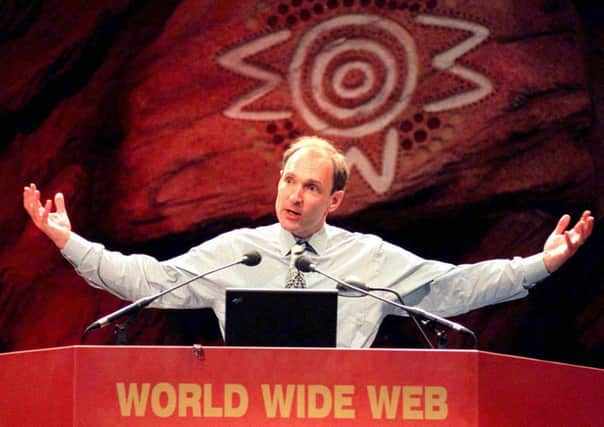www.happybirthday.worldwideweb


So ubiquitous has it become, and so integral to the work – and leisure – of hundreds of millions of people across the globe, it is hard to conceive how we were able to live without it.
When British computer scientist Sir Tim Berners-Lee first submitted his idea, the response from his boss was: “Vague, but exciting.” Originally conceived to meet the demand for information sharing between university scientists, he went on to develop an invention that has revolutionised the lives of billions. In late 1993, there were no more than 500 known web servers, and the world wide web accounted for 1 per cent of internet traffic. Two decades later, there are an estimated 630 million websites online. Recent government statistics show that, last year, 36 million adults (73 per cent) in Britain accessed the internet every day, with 21m households (83 per cent) having internet access. From corporate presentations to children’s homework, the web has become the “first-stop” information store. Were it to be suddenly unavailable now, many firms would collapse, business would slow, universities would panic, newspapers would have large empty spaces and tens of millions would collapse into a nervous breakdown.
Advertisement
Hide AdAdvertisement
Hide AdIt has not just changed the way we work, but the way we view the world. But has the world itself changed? Back in 1989, when the web was born, Western political leaders were celebrating the end of the Cold War after 40 years. Given recent developments in the Ukraine, perhaps we should not be too quick to congratulate ourselves on the white heat of human progress.